December 2017

ĀDI-PARVA
नारायणं नमस्कृत्य
नरञ्चैव नरोत्तमम् ।
देवीं सरस्वतीं व्यासं
ततो जयमुदीरयेत् ॥
Having saluted Nārāyaṇa,
the human and the divine;
Sarasvatī; and Vyāsa –
May Jaya be hailed!
Vaiṣampāyana narrated the story of Mahābhārata, which he had heard from his guru Vyāsa, to Janamejaya during his sarpa-yāga. The Sūta-paurāṇika Ugraśrava (the son of Lomaharṣa) who was present at the sarpa-yāga heard this story. When he visited the twelve-year-...
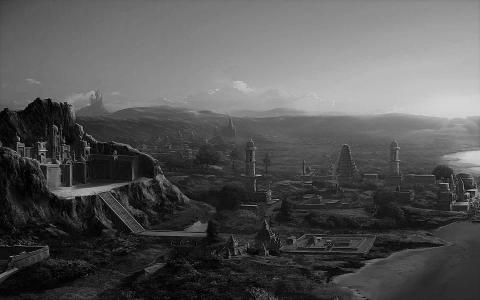
ಈಚೆಗೆ ನಮ್ಮ ದೇಶದ ಒಳಗೂ ಹೊರಗೂ ಭಾರತೀಯಪರಂಪರೆಯನ್ನು ಕುರಿತು ಕುತೂಹಲ ಮತ್ತು ನವೋತ್ಸಾಹಗಳು ಹೊಮ್ಮಿದಂತೆ ತೋರುತ್ತದೆ. ಈ ಮಾರ್ಪಾಡು ಸ್ವಾಗತಾರ್ಹವೇನೋ ದಿಟ, ಆದರೆ ಅದೆಷ್ಟೋ ಬಾರಿ ಇಂಥ ಕುತೂಹಲ-ಉತ್ಸಾಹಗಳು ಅತಿರೇಕ-ಅವಿವೇಕಗಳಿಂದಲೂ ಅವ್ಯುತ್ಪತ್ತಿ-ಅಸಾಮರ್ಥ್ಯಗಳಿಂದಲೂ ಕೂಡಿರುವುದು ವಿಷಾದಕರ. ವಿಶೇಷತಃ ಪ್ರಾಚೀನಭಾರತೀಯಸಮಾಜ ಮತ್ತು ಇತಿಹಾಸ-ಪುರಾಣಗಳನ್ನು ಆಧರಿಸಿದ ಕಥೆ-ಕಾದಂಬರಿಗಳಂಥ ರಸಪ್ರಧಾನವಾದ ಕಾಲ್ಪನಿಕರಚನೆಗಳನ್ನು ವಿವಿಧಭಾರತೀಯಭಾಷೆಗಳಲ್ಲಿಯೂ — ಎಲ್ಲಕ್ಕಿಂತ ಮಿಗಿಲಾಗಿ ಇಂಗ್ಲಿಷ್ ನಲ್ಲಿಯೂ — ನಡಸುತ್ತಿರುವ ಹೊಸ ಪೀಳಿಗೆಯ ಬರೆಹಗಾರರ ಪೂರ್ವ...
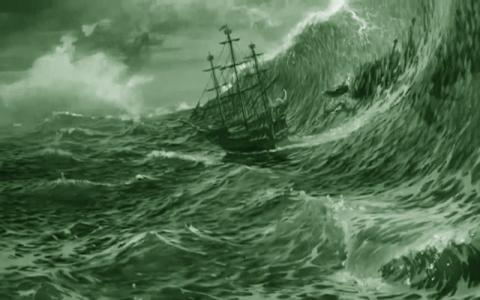
Analysis – Characters and events
The epics, Iliad and Odyssey, are placed in the backdrop of war and voyage at sea. Both war and voyage have always posed unexpected challenges, have given rise to intense emotions and unpredictable outcomes. Both war and voyage throw a challenge to a person’s very life. In addition to this, the intervention of supernatural powers manifested in the form of Gods, visit to unfamiliar lands and encounter with...
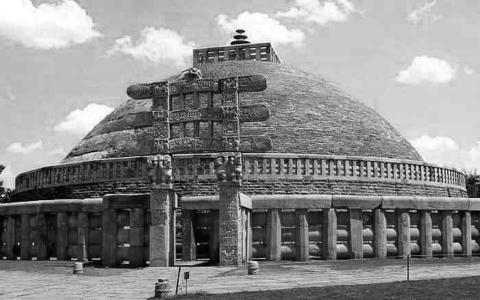
A few Chinese travellers like It-sing have recorded that Ashoka was a saṃnyāsi and a Bauddha bhikkhu. They also state that they have seen a statue in this form. There is a system among Buddhists: Anyone can become a saṃnyāsi and can revert to the life of a householder. They can also move to a different āśrama. Fa-hien, Xuanzang (Hiuen Tsang), It-sing, Dharmasvami, and others were Chinese Buddhist travellers who came to India. On numerous...
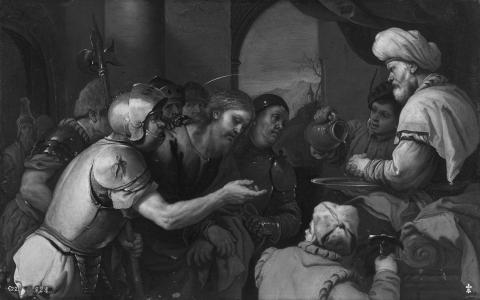
By the time Jesus was taken to Pontius Pilate, the governor of Judaea, by envious Jewish priests accusing him of treason and blasphemy, the Jewish high priest Joseph Caiaphas had already pronounced his death sentence. Jesus was produced before the governor only to get a formal administrative approval. They merely wanted Pilate to uphold the judgment of the Jewish high priest. That Jesus had to be awarded capital punishment was a foregone...

Uddaṇḍa-śāstri was well-known for his ability to compose fine poems on the move. He authored works such as Mallikāmāruta, Kokilasandeśa, Naṭāṅkuśa, and Svātīmuktaka. There are innumerable verses—some entertaining and some caustic—associated with Uddaṇḍa-śāstri’s life and works. At times, these verses can be enjoyed even without a context and stand as independent poems (muktakas). Here are a few verses that are neither contextual nor independent...
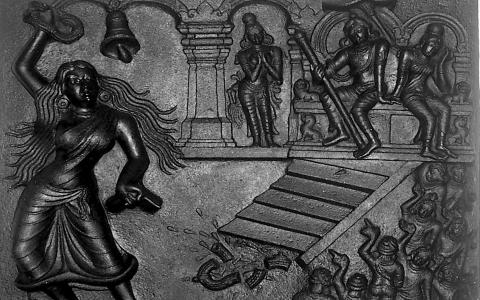
The previous episode recounted Dr. BGL Swamy’s firsthand experience of the nature and contours of an “official” Tamil history complete with concocted names for “pure Tamil” flora. If this was the state of affairs in the science department, it was taken to an entirely different level in the History department.
Dr. Swamy narrates how his university had endowments that allowed it to conduct annual memorial lectures on different subjects. The...
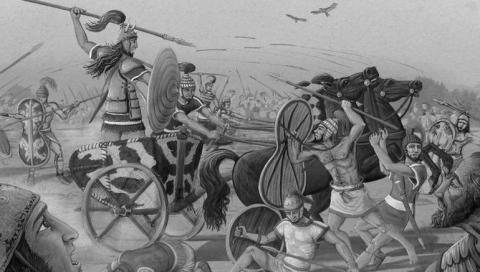
The current series on the epics of Homer is in six parts. The series contains a brief synopsis of the stories, analysis of the main characters and events, figures of speech and a discussion on the Greek epic structure. A talk on this topic was delivered by the author on 20th June 2016 in a seminar on Mahakavyas organized by the Bharatiya Vidya Bhavan, Bangalore
The current article adopts anglicized versions of proper nouns and the English...
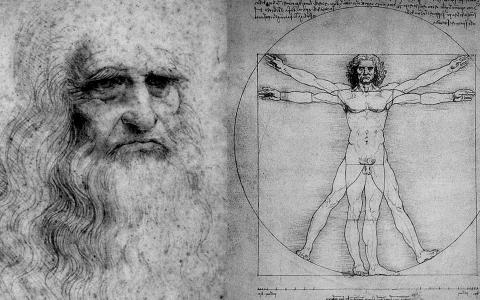
Having borne the title of Śatāvadhāni, I’m often referred to as having a ‘computer mind.’ Whether this is done out of affection or ignorance, it causes me a great deal of embarrassment. It’s true that the art of avadhāna is a special one and gaining any level of mastery over it, is remarkable. Perhaps devoid of nuanced understanding based on analysis of its internal and external facets, it is branded as a gigantic memory feat; this is an...

विदितमेव खलु काव्यं दृश्यं श्रव्यं चेत्यादौ द्वेधा विभक्तं; पश्चाद्गद्य-पद्य-चम्पूभेदत्वेन त्रेधा चेत्यपि । तथा च मुक्तक-युग्मक-सान्दानितक-कलापक-कुलक-अष्टक-शतकादिपद्यसङ्ख्यानुसारं विभागा वर्तन्त एव । अपि च गद्ये पद्यगन्धि-उत्कलिका-चूर्णिकाप्रायादयः सन्ति नैके विभागाः । महाकाव्यं, खण्डकाव्यं, आख्यायिका, कथा इत्यादयः श्रव्यकाव्यप्रभेदास्तथा नाटक-प्रकरण-भाणादिदशररूपकत्वेन च नाटिका-त्रोटक-सट्टकाद्यष्टादशाधिकोपरूपकत्वेन दृश्यकाव्यप्रकारा अपि राजन्त...
